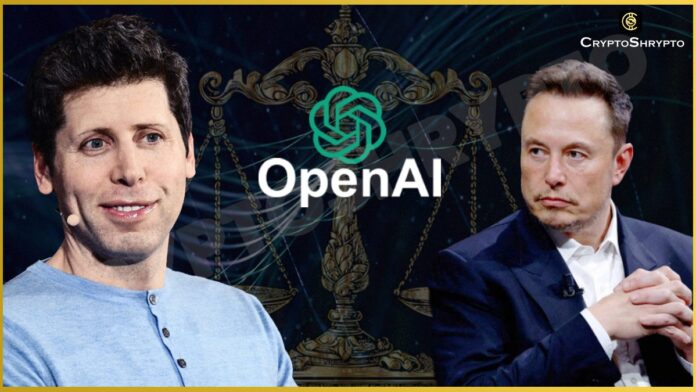Elon Musk has reignited legal action against OpenAI and its CEO, Sam Altman, alleging that the company has prioritized commercial interests over the public good. The lawsuit disputes OpenAI’s partnership with Microsoft, claiming it exceeds the intended scope and seeks to invalidate the tech giant’s license to use OpenAI’s AI models.
The case involves Elon Musk, a co-founder of OpenAI who left the organization in 2018, and Sam Altman, OpenAI’s CEO. Musk’s legal action is also directed at Microsoft, which has invested $13 billion in OpenAI’s for-profit subsidiary since 2019. Musk’s competing venture, xAI, was valued at $24 billion earlier this year.
The lawsuit was refiled on Monday in the Northern District of California. This follows an earlier lawsuit filed by Musk in February, which was withdrawn in June just before a court hearing. The refiled suit comes amid increasing competition in the AI industry and Musk’s ongoing criticisms of OpenAI’s direction.
According to the lawsuit, once OpenAI’s technology began revolutionizing the generative AI market, Altman allegedly shifted the company’s focus to profit-making, contrary to initial assurances that the research would remain open and freely accessible. The suit argues that OpenAI’s transformation into a for-profit entity, especially through its collaboration with Microsoft, contradicts its original nonprofit mission. Musk seeks to nullify the partnership, which has been highly profitable for both OpenAI and Microsoft, particularly after the success of OpenAI’s ChatGPT.
OpenAI was established with a mission to advance artificial intelligence safely and ethically. However, since Musk’s departure, the organization has evolved into a major player in the AI industry, especially following the release of ChatGPT. Musk’s lawsuit highlights concerns over the commercialization of AI technology and the ethical considerations that come with it.
If Musk succeeds, the outcome could disrupt a significant partnership that has positioned Microsoft at the forefront of generative AI. The case also underscores the growing regulatory scrutiny and ethical debates surrounding the rapid commercialization of AI technologies. A favorable ruling for Musk could set a precedent for how AI technologies are managed and commercialized, potentially influencing future collaborations in the tech industry.




